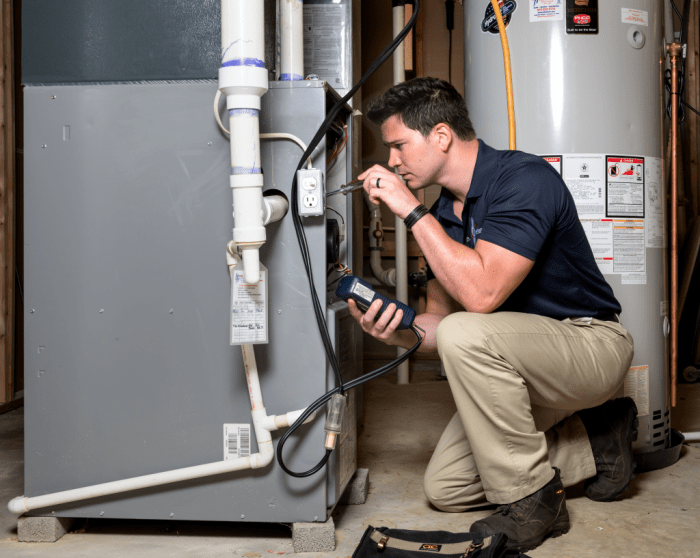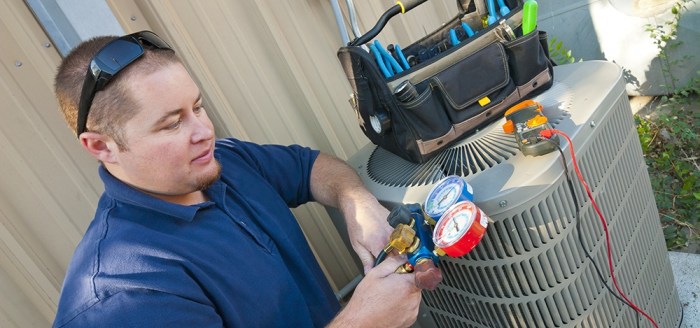AC furnace tune-up is a crucial aspect of maintaining your cooling and heating system, ensuring it functions efficiently and effectively. From enhancing energy efficiency to prolonging the lifespan of your equipment, tune-ups offer a range of benefits that homeowners should not overlook.
Let's delve into the key components, DIY maintenance tips, signs that indicate a tune-up is needed, and more to help you keep your AC furnace in top condition.
Importance of AC Furnace Tune-Up
Regular tune-ups are crucial for AC furnaces to ensure they are operating efficiently and effectively. By scheduling routine maintenance, homeowners can prevent potential breakdowns, extend the lifespan of their unit, and save money in the long run. Additionally, tune-ups can help improve energy efficiency, leading to lower utility bills and reduced energy consumption.
Benefits of Scheduling Routine Maintenance
- Prevent breakdowns: Regular tune-ups can identify and address minor issues before they escalate into major problems, helping to avoid unexpected breakdowns.
- Extend lifespan: Proper maintenance can extend the lifespan of the AC furnace, allowing homeowners to get the most out of their investment.
- Save money: By addressing issues early on and ensuring the unit is running efficiently, homeowners can save money on costly repairs and high energy bills.
How Tune-Ups Improve Energy Efficiency
- Optimizing performance: Regular tune-ups can optimize the performance of the AC furnace, ensuring it operates at peak efficiency.
- Cleaning components: Cleaning and inspecting components during tune-ups can help reduce energy consumption and improve airflow.
- Checking settings: Technicians can check and adjust settings during tune-ups to ensure the unit is running as efficiently as possible.
Components Checked During a Tune-Up
Regular AC furnace tune-ups involve a thorough inspection of various components to ensure optimal performance and efficiency. Here are the key components typically checked during a tune-up:
Filters, Ducts, and Electrical Connections
During a tune-up, HVAC professionals will inspect and clean the filters, ducts, and electrical connections of the AC furnace system. This is important because:
- Filters: Clean filters help improve air quality, prevent dust buildup, and ensure proper airflow, leading to better efficiency and reducing strain on the system.
- Ducts: Inspecting ducts helps identify any leaks or blockages that can affect airflow and efficiency, ensuring that conditioned air reaches all areas of the home.
- Electrical Connections: Checking electrical connections helps prevent issues such as short circuits or system failures, ensuring safe and reliable operation.
Cleaning Coils and Checking Refrigerant Levels
Another crucial aspect of a tune-up is cleaning the coils and checking refrigerant levels. This is essential because:
- Clean Coils: Dirty coils can reduce the system's efficiency and cooling capacity, leading to increased energy consumption and potential breakdowns. Regular cleaning helps maintain optimal performance.
- Refrigerant Levels: Checking refrigerant levels is important for proper cooling and dehumidification. Low refrigerant levels can indicate leaks or other issues that need to be addressed promptly to avoid system damage.
DIY Maintenance Tips

Regular maintenance is essential to ensure your AC furnace operates efficiently. Here are some DIY tips to help you keep your system in good condition:
Cleaning or Replacing Air Filters
One of the simplest yet most important maintenance tasks for your AC furnace is cleaning or replacing the air filters regularly. Clogged filters can restrict airflow, reduce efficiency, and even lead to system failure. Here's how you can do it:
- Refer to the manufacturer's instructions to locate the air filter.
- Turn off the power to the furnace before removing the filter.
- Inspect the filter for dirt and debris - if it's dirty, replace it with a new one. If it's reusable, clean it according to the manufacturer's guidelines.
- Make sure to install the filter in the correct direction to avoid airflow issues.
- Regularly check and replace or clean the filter every 1-3 months, depending on usage.
Keeping the Area Around the Furnace Clear
To ensure proper airflow and prevent potential hazards, it's crucial to keep the area around your furnace clear of debris and clutter. Here's why it's important and how you can do it:
- Remove any objects, boxes, or clutter near the furnace to allow for proper ventilation.
- Ensure there are no flammable materials or chemicals stored near the furnace to prevent fire hazards.
- Regularly vacuum or sweep the area around the furnace to prevent dust buildup, which can affect the system's efficiency.
- Check for any signs of water leakage or moisture accumulation around the furnace, as this can indicate a potential issue that needs to be addressed.
- Keep the area well-lit and easily accessible for maintenance and inspection purposes.
Signs That Indicate a Need for a Tune-Up
When it comes to your AC furnace, paying attention to signs that indicate the need for a tune-up is crucial to ensure it operates efficiently. Ignoring these signs can lead to more serious issues and costly repairs down the line.
Strange Noises or Odd Smells
Strange noises such as banging, whistling, or rattling coming from your AC furnace can be a clear indicator that something is not right. Similarly, odd smells like burning or musty odors should not be ignored as they can signal a problem with the system.
Decreased Efficiency or Uneven Heating
If you notice that your AC furnace is not heating your home as effectively as it used to or if you experience uneven heating throughout your space, it could be a sign that a tune-up is needed. Decreased efficiency can result from various issues that can be addressed during a maintenance check.
Outcome Summary

In conclusion, prioritizing regular AC furnace tune-ups can save you time, money, and hassle in the long run. By staying proactive and addressing maintenance needs promptly, you can enjoy a comfortable indoor environment while maximizing the performance of your system.
Don't wait until issues arise – schedule your tune-up today and reap the rewards of a well-maintained AC furnace.
Essential Questionnaire
What are the benefits of scheduling routine AC furnace tune-ups?
Regular tune-ups can improve energy efficiency, extend the lifespan of your system, prevent costly repairs, and ensure optimal performance.
Which components are typically inspected during a tune-up?
Filters, ducts, electrical connections, coils, and refrigerant levels are commonly checked during a tune-up to ensure everything is in working order.
How can homeowners clean or replace air filters as part of DIY maintenance?
Homeowners can clean reusable filters with water or vacuum them, while disposable filters can be replaced according to the manufacturer's recommendations.
What are some common signs that indicate an AC furnace needs a tune-up?
Strange noises, odd smells, decreased efficiency, uneven heating, or frequent cycling are all indicators that your AC furnace may require maintenance.
